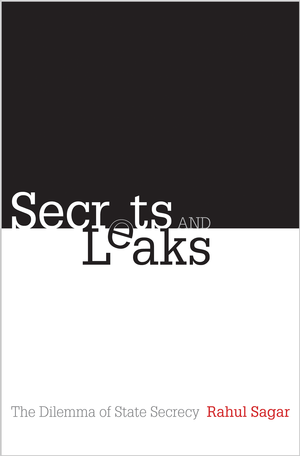John M. Breen, Loyola University Chicago School of Law, and
Lee J. Strang, University of Toledo College of Law, have posted
The Forgotten Jurisprudential Debate: Catholic Legal Thought's Response to Legal Realism. Here is the abstract:
Although countless journal articles and numerous books have described Legal Realism, The Forgotten Jurisprudential Debate: Catholic Legal Thought’s Response to Legal Realism, is the first to describe the widespread and thoughtful critique of Realism by an organized jurisprudential movement of Catholic legal scholars during the 1930s-1940s.
In this Article, we accomplish three goals. First, we describe the standard historical narrative in which the contributions by Catholic legal scholars are ignored or marginalized. This gap is surprising because the critique offered by Catholic legal scholars constituted the single largest body of criticism aimed at Realists. This gap is doubly-surprising because the arguments offered by Catholic legal scholars were generally thoughtful and nuanced, in large measure because they built on the world-wide Neo-Scholastic revival then taking place.
Second, we detail the neglected Catholic legal scholars’ critique of Legal Realism. We describe the major Catholic legal scholars and how their movement drew upon, reflected, and facilitated the world-wide revival of Thomistic philosophy. Like other intellectual movements, Catholic legal scholars sought to institutionalize their movement in various ways.
Third, we explore the oddness of historians’ neglect and marginalization of Catholic legal scholar contributions. We end by suggesting causes for the poverty of extant historical accounts.

It's hard for me to think of the Catholic critique of Legal Realism as "forgotten." When I attended the University of Chicago Law School in the early 1980s,
Dennis Hutchinson assigned the relevant chapter in Edward Purcell's
Crisis of Democratic Theory in his course on the legal realists. One of my classmates,
Michael A. Lindsay, now a longtime partner at Dorsey, wrote an excellent paper on the Catholic critique. In addition, Purcell's chapter is taught every year in
a required course in
our alternate first-year section, and not simply because Georgetown is, as we sometimes acknowledge, a Catholic and Jesuit institution. (Most of the teachers of the course are not Catholic, and none of them is a Jesuit.) At Georgetown Law, too, our guest blogger
Ajay Mehrotra was moved to write and publish
a paper on Georgetown's Father Francis Lucey (right) in part because of
his multiple encounters with Crisis, including in a jurisprudence course taught by my colleague Gary Peller.
Breen and Strang write that "Purcell fairly described the major Catholic legal scholars, their attempted institution-building, their connection to the then-flourishing worldwide Neo-Scholastic movement, and their core claims” but that when he evaluates the Catholic legal scholars' claims "he lapsed into simplistic caricature. . . . Unlike most—more mature, in Purcell’s eyes—American intellectuals, Purcell contended, 'the Catholics had never faced the crisis of democratic theory' because of their 'simple religious faith.'”

Professor Purcell can speak for himself, but I've always credited him with rescuing Father Lucey, Ben Palmer
et al. from the obscurity to which America's secular law professors had consigned them, and I've assumed that his respect for his Jesuit teachers at Rockhurst College was at least one reason why he did. Read in context, that reference to "simple religious faith" is not patronizing. "Because of the close union between their religious faith and their philosophical training," Purcell wrote, "they had a ready justification for democracy, just as they had a ready justification for an entire system of morality, based on theology, philosophy, and simple religious faith" (169).
In this sentence, "simple" doesn't mean "simple-minded." Purcell uses the word to contrast religious faith with the Catholic jurists' theology and philosophy. Presumably those were not simple in any sense.
I understand Purcell not to claim that “Catholic legal scholars’ arguments failed" absolutely but that they failed to convince the other legal intellectuals of their day, because the Catholic jurists did not experience the rise of scientific naturalism as creating a "crisis of democratic theory in the same way that other American intellectuals did" (Purcell, 169). And they did not because their Thomist rationalism kept them from embracing the value-free version of social science that provoked the crisis in others.
It has been years since I've read the dissertation and related work Father Lucey wrote while obtaining his (unaccredited) doctorate in sociology from Georgetown, but a quick review of the notes I took in
his papers when writing
a history of Georgetown Law is consistent with Purcell's interpretation.
None of this, of course, argues against the timeliness and importance of the Professors Breen and Strang's paper.
 Thanks to Ajay Mehrotra, Indiana Law, for his series of thoughtful guest posts about becoming a legal historian and teaching legal history.
Thanks to Ajay Mehrotra, Indiana Law, for his series of thoughtful guest posts about becoming a legal historian and teaching legal history.














